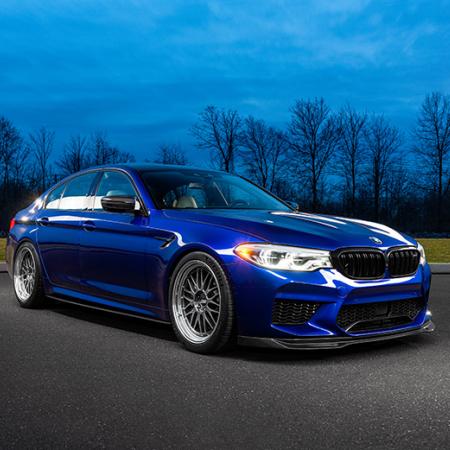
At the 2014 Winter Olympics at Sochi, Team USA had a very successful run at the two-man bobsled competition, employing a BMW-designed sled which helped them overcome a 62-year medal drought. Now the BMW design team has shifted their focus to the 2016 Paralympic Games in Rio, with a new racing wheelchair to be used by the U.S. Paralympics Track and Field Team.
This latest endeavor marks the fourth vehicle technology transfer project developed by BMW as part of its six-year partnership with Team USA.
As with the development of its previous technology projects for Team USA, BMW has enlisted world-class designers from Designworks, its global creative consultancy headquartered in California, to collaborate with the U.S. Paralympics Track and Field team in identifying and addressing the need for potential improvements in the team’s equipment – namely the racing wheelchair. Although still in its infancy, the wheelchair’s significant improvements will include a complete redesign of its chassis, application of BMW’s signature aerodynamic efficiencies, enhanced athlete restraint, carbon fiber durability, as well as steering and braking advancements.
“Over the course of our partnership with Team USA, we have been committed to advancing athletic performance through technology transfer initiatives which help to address their training and equipment needs,” said Trudy Hardy, Vice President, Marketing, BMW of North America. “This one is special not only because it presents a unique design challenge, but it helps solve a bigger mobility challenge for our Paralympic athletes.”
Nearly one year in development, the wheelchair is slated to be delivered to U.S. Paralympics track and field elite racers in early 2016. In the months ahead, BMW will continue working closely with athletes and coaches to integrate further enhancements and refinements as needed.
Each of these projects ladders up to BMW’s larger commitment to advancing the training and performance goals of the athletes of Team USA as part of a sponsorship that extends through the Rio 2016 Olympic and Paralympic Games.—Nate Risch








